Of all the variants of the Boeing 737, it was the 737-400 that made the most sense to me (at least visually). It’s a very well-proportioned aircraft with just the right amount of overhang ahead of and behind the wing.
Compared to longer versions of the 737 (such as the 737-900 and 737-9 MAX), the 737-400 was a well-rounded aircraft suitable for a wide variety of operations.
I remember flying on these things extensively along the West Coast (on Alaska Airlines), as well as longer routes between Chicago and the West Coast on USAir. Both USAir and Alaska Airlines utilized their 737-400s much like all the major airlines utilize their 737-800s today. Back then, it was about as versatile as an aircraft as an airline could get.
Side view templates of the Boeing 737-400 (passenger version)
From a design perspective, I consider the 737-400 to be one of the best aircraft that Boeing ever created. It certainly wasn’t the best seller, but it had the perfect amount of visual balance to it that most aircraft at the time didn’t have.
For example, the Boeing 707 seemed funny looking to me back then because of how small the engines were. Shame on me (I know). But I specifically remember liking the 737-400 because of the large engines, which seems silly today. Back then, it looked absolutely fantastic.
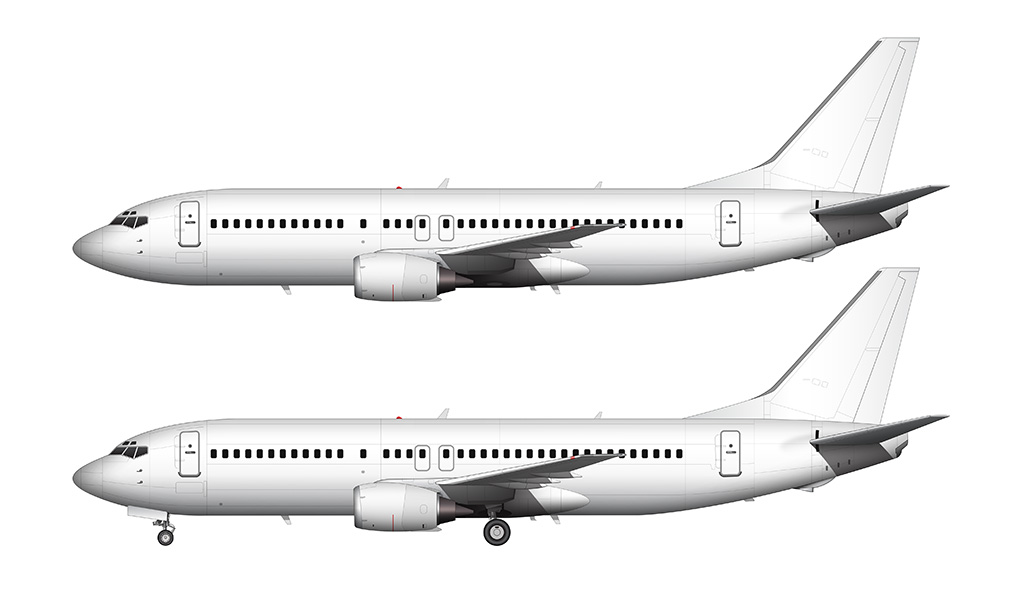
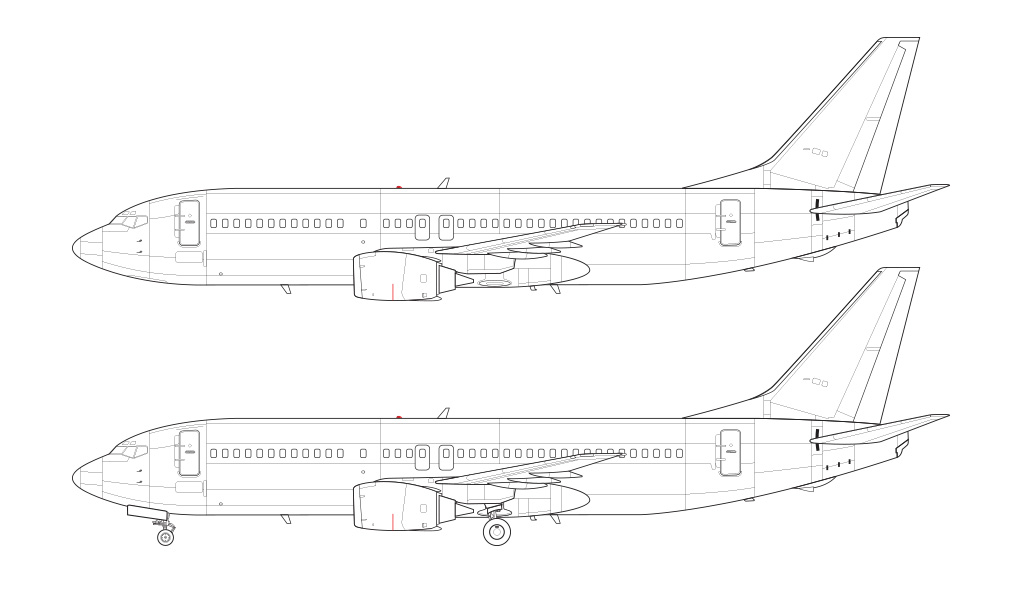
Although the 737-400 was nowhere near being the most popular version of the 737 ever (that honor goes to the 737-800), it’s still the variant that I think of first when somebody says “737” to me.
I’m pretty sure that I have Alaska Airlines to thank for that, because the -400 was the main type of aircraft they flew to my home airport of SAN (and nearby SNA) back in early 2000’s. All those -400s with the Alaska Airlines livery have been etched into my brain permanently, and it’s the 737 I think of the most when I think of the 737. Weird, I know.
486 737-400s were produced between years of 1988 and 2000, which is 97 more than the 737-500. The 737-300 was the king of the 737 Classic series with 1113 total sales. If you’re curious, it was the 737-100 which was the major 737 variant with the fewest sales. Only 30 buyers lined up for that one, which is odd considering that the 737 went on to be the most popular jet airliner of all time.
737-400SF Combi (freighter) templates
Despite how well the 737-400 sold, Boeing never created a dedicated freighter version of it. Alaska Airlines (one of the largest operators of this aircraft type) found themselves with a need to haul a significant amount of cargo on certain routes, and took it upon themselves to help develop the 737-400SF (Special Freighter).
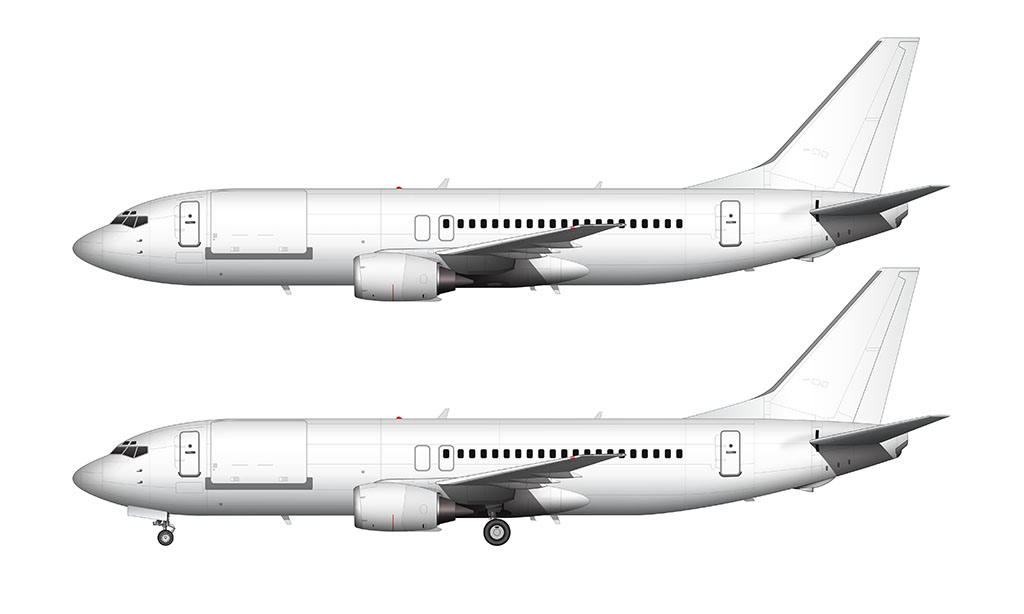
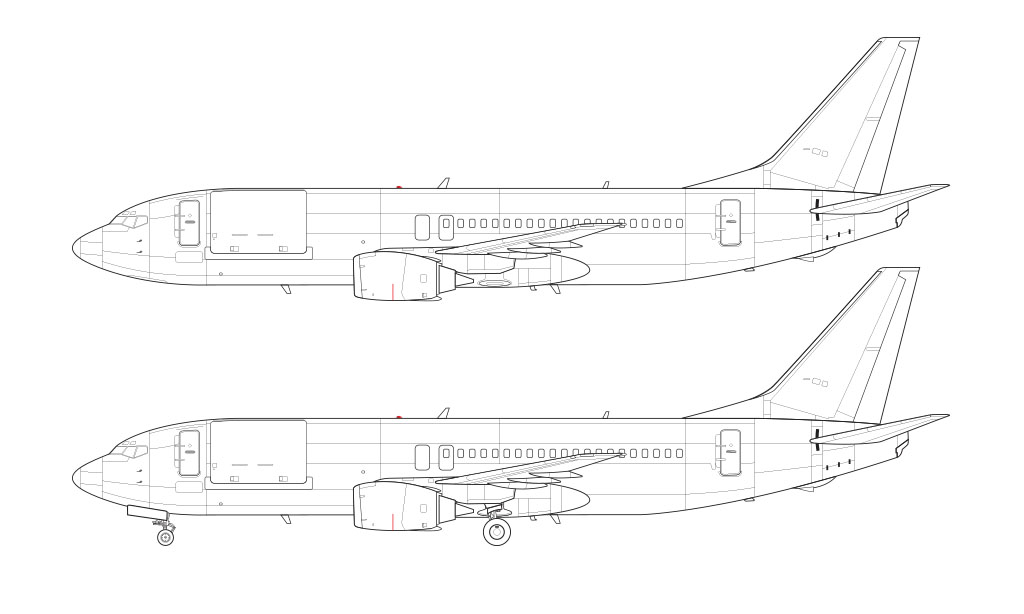
It ended up being a “combi” by design rather than a purpose-built freighter. A large cargo door was added to the forward section of the fuselage, while the aft section of the aircraft remained untouched in a passenger configuration.
This layout worked extremely well for Alaska Airlines. Once these aircraft had reached retirement age, they were replaced with cargo versions of the 737-700.
A few final words about my Boeing 737 templates
The problem with my 737 family of templates is the fact that there are so many:
Every time that I realize that I made a little mistake on one (it happens more often than I care to admit), I have to go back in and fix every single one of the others in the series.
Making matters more complicated is the fact that most versions of the 737 have multiple sub-variants (winglets vs no winglets). It’s a very time consuming (and mind-numbing) process to modify and regenerate final illustrations for every template when I discover errors.
Long story short, I guess what I’m trying to say is that these Boeing 737 templates have been my my most frustrating – yet satisfying – series so far. It hasn’t been easy to get to this point, but I’m looking forward to continuously refining them over the years in order to make them as perfect as they can be.


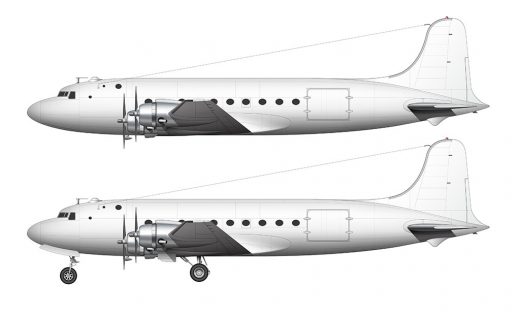
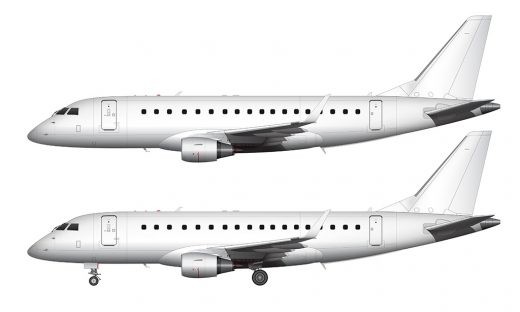
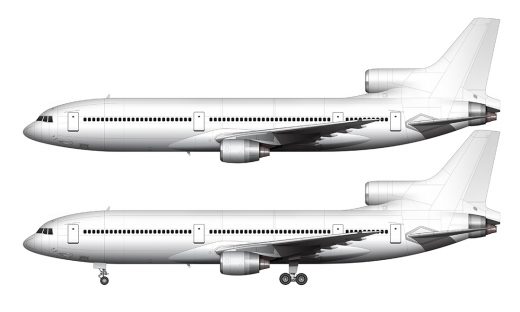
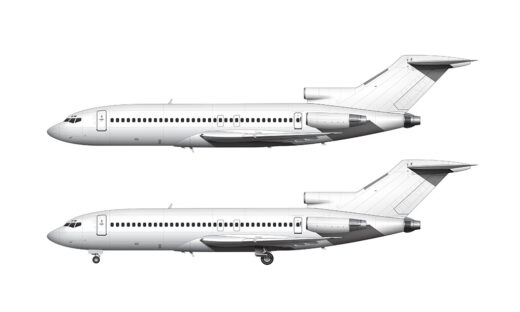
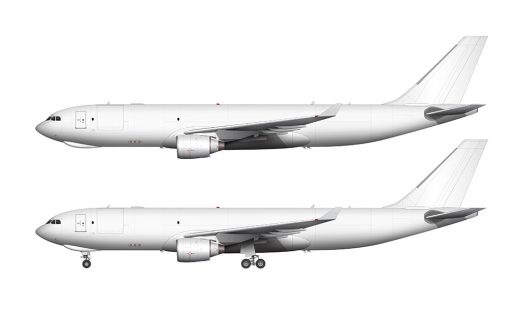
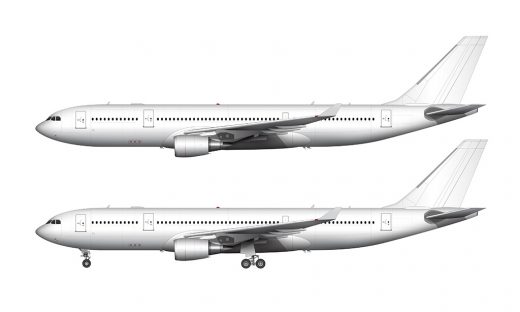
The Boeing 737 family is being completed, Only the 737-300 and 200 are missing
And the -100 too, which will be coming last!
Can you do a cargo version
Good suggestion – I thought that I already did, but it appears that I may have missed that. I’ll add it to my list…
I also have used your templates to make my own airline (RR Airlines). Without you it would be pretty much impossible
Yes! You’re back again! Looking great!
Thanks! I’m slowly going back through my collection and making updates and edits to everything. In the case of this 737-400, I added the Combi (freighter) version and updated/reformatted the blog post. The work never ends!
What are you going to make next?
I’ve got a handful in the works, but my 757 freighter templates are the closest to being complete.
hello! when you are going to make templates of russian aircraft, I would like to see the template of the tupolev Tu-214 or Tu 204?
I actually have a template of a Tu 204 started, but I haven’t had time to finish it recently. That will be my next Russian aircraft.
If we added winglets then it would be a 737-800
Pretty much! They’re very similar (at least visually).